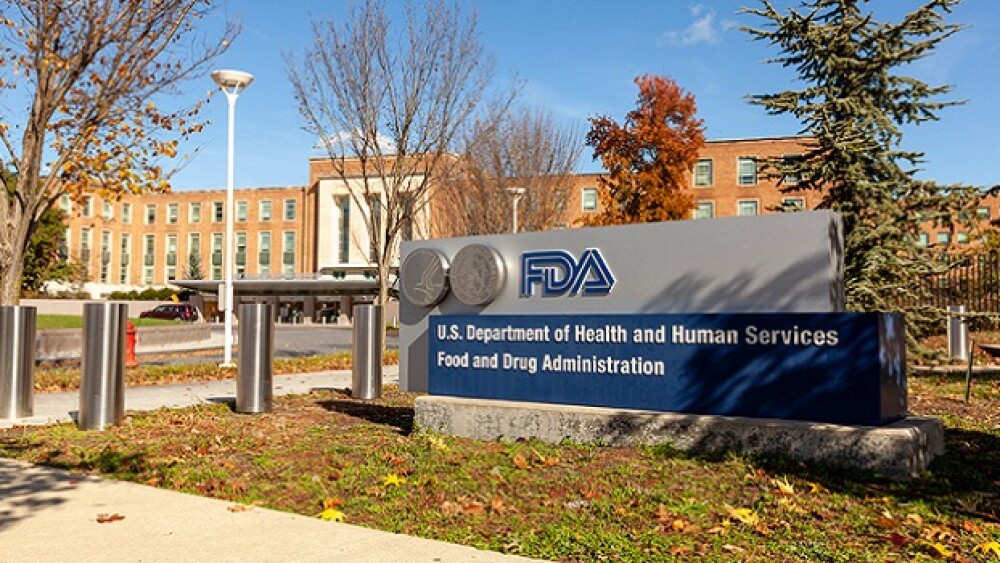CymaBay Therapeutics, Inc. today announced that results from the Phase 2, 52-week study of seladelpar in patients with primary biliary cholangitis (PBC) have been published in the Journal of Hepatology.
NEWARK, Calif., April 04, 2022 (GLOBE NEWSWIRE) -- CymaBay Therapeutics (NASDAQ: CBAY), a biopharmaceutical company focused on developing and providing access to innovative therapies for patients with liver and other chronic diseases, today announced that results from the Phase 2, 52-week study of seladelpar in patients with primary biliary cholangitis (PBC) have been published in the Journal of Hepatology:
Bowlus CL, Galambos MR, Aspinall RJ, Hirschfield GM, Jones DEJ, Dörffel Y, Gordon SC, Harrison SA, Kremer AE, Mayo MJ, Thuluvath PJ, Levy C, Swain MG, Neff GW, Sheridan DA, Stanca CM, Berg CP, Goel A, Shiffman ML, Vierling JM, Boudes P, Steinberg A, Choi YJ, McWherter CA, A phase II, randomized, open-label, 52-week study of seladelpar in patients with primary biliary cholangitis, Journal of Hepatology (2022), doi: https://doi.org/10.1016/j.jhep.2022.02.033.
This 52-week, phase 2, dose-ranging, open-label study examined the efficacy and safety of seladelpar, a selective peroxisome proliferator-activated receptor-delta agonist, in adults with PBC who were receiving or intolerant to first-line therapy with ursodeoxycholic acid. Eligible patients were enrolled with a minimum serum alkaline phosphatase (ALP) levels of 1.67 times the upper-limit-of-normal (194 U/L) and which were on average in excess of 318 U/L. Seladelpar was administered orally once daily at 2 mg (n=11), 5 mg (n=53) or 10 mg (n=55) for 12 weeks, after which doses could be increased up to 10 mg if needed to improve treatment response. Cirrhosis was present in 21% of patients; 71% had pruritus.
An interim primary efficacy analysis of ALP change from baseline at Week 8 found that seladelpar treatment provided 26%, 33%, and 41% reductions for the 2 mg, 5 mg and 10 mg doses, respectively (all p<0.005). Responses were maintained or improved at Week 52 which included dose escalation in 91% and 80% of the 2 mg and 5 mg cohorts, respectively. At Week 52, the composite biochemical response (ALP <1.67×ULN, ≥15% ALP decrease from baseline, and normal total bilirubin) rates were 64%, 53%, and 67%, and ALP normalization rates were 9%, 13%, and 33% in the 2 mg, 5 mg, and 10 mg cohorts, respectively. The pruritus visual analog scale score was also decreased in the 5 mg and 10 mg cohorts. There were no treatment-related serious adverse events (AEs), and 4 patients discontinued due to AEs.
Lead investigator Professor Christopher Bowlus, MD, Division Chief of Gastroenterology and Hepatology at the University of California Davis Health, commented, “These results are particularly encouraging as they reveal a pattern of dose-dependent and persistent improvements in liver biochemistries which have been associated with improved clinical outcomes. Patients with PBC are in need of new therapies that are well tolerated and provide clinical benefits. These results support further development of seladelpar as a potential new therapy for PBC.”
A companion manuscript of results from this study were also published in the journal Liver International. It reported the effects of seladelpar treatment on patient reported symptoms of pruritus (itching), sleep and fatigue through one year of treatment:
Kremer AE, Mayo MJ, Hirschfield G, Cynthia Levy C, Bowlus CL, Jones DE, Steinberg A, McWherter CA and Choi YJ, Seladelpar improved measures of pruritus, sleep, and fatigue and decreased serum bile acids in patients with primary biliary cholangitis. Liver Int. 2022;42:112–123. https://doi.org/10.1111/liv.15039.
Professor Andreas Kremer, MD, PhD, MHBA from the Department of Gastroenterology and Hepatology, University Hospital Zürich, Zürich, Switzerland served as the lead for analyzing the effects of seladelpar treatment on symptoms. Dr. Kremer offered that “Many patients with PBC have significant symptoms of itching, impaired sleep and fatigue, that can cause incessant suffering and result in great mental stress. Patients need therapies to address their symptoms and the results of this open label study suggest that seladelpar has the potential to provide symptom relief. The results reported in these two publications suggest a profile for seladelpar impacting both disease and symptoms, characteristics needed in new treatments for PBC.”
CymaBay is currently enrolling RESPONSE, a global phase 3 study of seladelpar in patients with PBC that is intended to confirm these results. Seladelpar’s development program also includes ASSURE, a global phase 3 long-term study that is expected to contribute safety and efficacy data on more than 300 patients treated with seladelpar.
About PBC
PBC is a rare, chronic autoimmune liver disease primarily affecting women (1 in 1,000) over the age of 40. PBC is characterized by impaired bile flow (known as cholestasis) and the accumulation of toxic bile acids in the liver, leading to inflammation and destruction of the bile ducts within the liver and causing increased levels of alkaline phosphatase (ALP) and total bilirubin. The most common early symptoms of PBC are itching (pruritus) and fatigue, which can be very debilitating for some patients. Progression of PBC is associated with an increased risk of liver cancer and liver-related mortality.
About Seladelpar
Seladelpar is a first-in-class oral, selective PPARδ agonist shown to regulate critical metabolic and liver disease pathways in indications with high unmet medical need. Preclinical and clinical data support its ability to regulate genes involved in bile acids synthesis, inflammation, fibrosis and lipid metabolism, storage and transport.
About CymaBay
CymaBay Therapeutics, Inc. is a clinical-stage biopharmaceutical company focused on improving the lives of people with liver and other chronic diseases that have high unmet medical need through a pipeline of innovative therapies. Our deep understanding of the underlying mechanisms of liver inflammation and fibrosis, and the unique targets that play a role in their progression, have helped us receive breakthrough therapy designation (U.S. Food and Drug Administration), PRIority MEdicines status (European Medicines Agency) and orphan drug status (U.S. and Europe) for seladelpar, a first-in-class treatment for people with primary biliary cholangitis (PBC). Our evidence-based decision-making and commitment to the highest quality standards reflect our relentless dedication to the people, families and communities we serve. To learn more, visit www.cymabay.com and follow us on Twitter and Linkedin.
Cautionary Statements
Any statements made in this press release regarding the potential for seladelpar to treat PBC and potentially improve clinical symptoms of the disease, the potential benefits to patients, CymaBay’s expectations and plans regarding its current and future clinical trials, including the timing of enrollment in RESPONSE, the impact of the COVID pandemic on the enrollment timeline for CymaBay’s clinical trials and CymaBay’s ability to fund current and planned clinical trials are forward-looking statements that are subject to risks and uncertainties. Actual results and the timing of events regarding the further development of seladelpar could differ materially from those anticipated in such forward-looking statements as a result of risks and uncertainties, which include, without limitation, risks related to: the success, cost and timing of any of CymaBay’s product development activities, including clinical trials; effects observed in trials to date that may not be repeated in the future; any delays or inability to obtain or maintain regulatory approval of CymaBay’s product candidates in the United States or worldwide; the potential emergence of other COVID variants; and the ability of CymaBay to obtain sufficient financing to complete development, regulatory approval and commercialization of its product candidates in the United States and worldwide. Additional risks relating to CymaBay are contained in CymaBay’s filings with the Securities and Exchange Commission, including without limitation its most recent Annual Report on Form 10-K, its Quarterly Reports on Form 10-Q and other documents subsequently filed with or furnished to the Securities and Exchange Commission. CymaBay disclaims any obligation to update these forward-looking statements except as required by law.
For additional information about CymaBay, visit www.cymabay.com.
Public Relations Contact:
Glenn Silver
Lazar-FINN Partners
(973) 818-8198
Glenn.silver@finnpartners.com
Investor Relations Contact:
Hans Vitzthum
LifeSci Advisors, LLC
(617) 430-7578
Hans@LifeSciAdvisors.com






